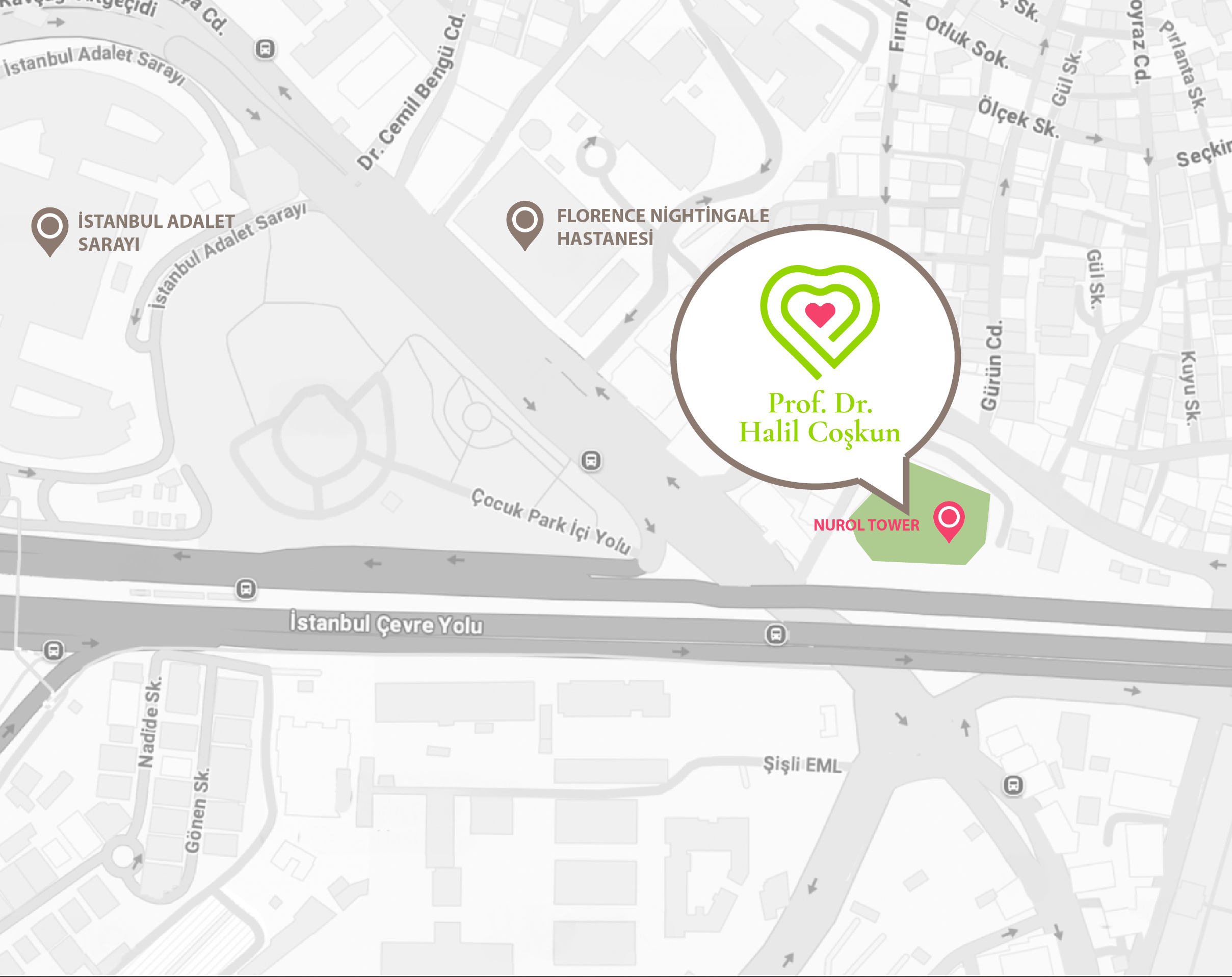Sleeve Gastrectomy Surgery
 Sleeve gastrectomy is one of the most commonly performed obesity surgery options both globally and in Turkey. Under general anesthesia, this surgery is performed using laparoscopic (closed) or robotic surgery methods with 4-5 small incisions on the abdominal area. In suitable cases, single port surgery (one incision) may also be applied.
Sleeve gastrectomy is one of the most commonly performed obesity surgery options both globally and in Turkey. Under general anesthesia, this surgery is performed using laparoscopic (closed) or robotic surgery methods with 4-5 small incisions on the abdominal area. In suitable cases, single port surgery (one incision) may also be applied.
How is the Surgery Performed?
In sleeve gastrectomy surgery, approximately 80-85% of the stomach is removed vertically. After this procedure, the stomach volume decreases to 150-200 ml, and the patient feels full after consuming smaller amounts of food. This surgery belongs to the volume-restrictive surgical category.
Weight Loss Mechanism
Sleeve gastrectomy causes weight loss through two different mechanisms:
- Restrictive Effect: Since the stomach volume is reduced, patients feel the need to eat less.
- Endocrine Effect: The level of ghrelin (the hunger hormone), which is secreted from the fundus of the stomach, decreases. This suppresses appetite and increases the feeling of fullness.
Who is Suitable for Sleeve Gastrectomy?
- Individuals with a BMI > 35 kg/m²
- Individuals with a BMI between 30-35 kg/m² who have comorbidities like type 2 diabetes, hypertension, sleep apnea, etc.
- Individuals who have not been able to lose enough weight through diet, exercise, and medical treatment
- Patients who are deemed suitable after behavioral and medical evaluation
Hospital Stay Duration
Patients generally stay in the hospital for 2-3 days. This duration may be extended depending on pre-surgery evaluations and the recovery process.
Is Vitamin and Mineral Supplementation Required?
Sleeve gastrectomy is not an absorptive surgery, but due to deficiencies in stomach acid and intrinsic factor:
- Iron
- Vitamin B12
supplementation is required. These needs are evaluated individually during the follow-up process.
How Much Weight Can Be Lost?
- 60-70% of excess weight can be lost within 1-2 years.
- This rate can increase to 80-90% in individuals who follow diet and follow-up protocols.
The weight loss achieved through sleeve gastrectomy can be similar to other surgeries like gastric bypass.
Can Weight Be Regained?
Weight regain is possible to some extent. Reasons include:
- Expansion of the sleeve over time
- Faulty eating habits
- Consumption of high-calorie and liquid foods
In individuals under regular follow-up, effective weight loss and maintenance of the lost weight are much higher.
What Are the Risks of the Surgery?
- General surgical risks: bleeding, infection, embolism
- Leaks: The risk of leakage from the stapled line after the stomach is cut and stapled is around 1% on average.
To minimize this risk:
- Experienced surgeon
- FDA-approved materials (Johnson & Johnson, Medtronic)
- Supporting tissue products (Baxter)
are used.
Scientific Publications and Experience
The sleeve gastrectomy surgeries performed by Prof. Dr. Halil Coşkun are supported by publications that contribute to international literature. You can access the publication related to our series of 1000 sleeve gastrectomy surgeries through >>>via this link.
You can access Prof. Dr. Halil Coşkun’s recent SCI and SCI-Expanded academic publications >>> via this link
Sleeve gastrectomy is not just a surgery but a long-term life transformation with our expert team and functional follow-up system.
Obesity doesn’t have to be your destiny.
Take the first step now.










